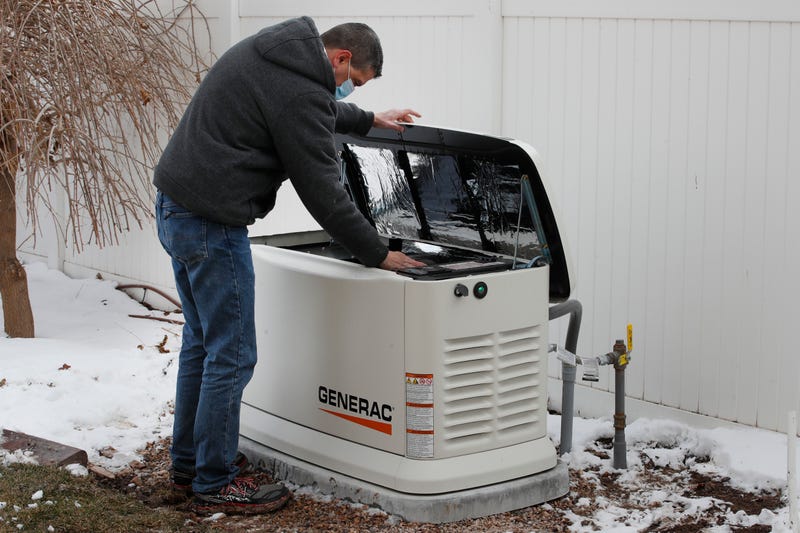
Buffalo, N.Y. (WBEN) - New York State's Climate Action Council approved a scoping plan in December which could, starting in 2025, prohibit homes from installing equipment powered by natural gas as well as ban the sale of gas-powered appliances by 2030.
While this plan will still need to be passed by state legislature, this plan could have a significant impact on costs for homeowners. Specifically, those looking to buy new homes as well as those looking to purchase whole home generators.

"Presently, most of the (generator) systems in residential areas do operate on natural gas. So if you have a moratorium on new construction that precludes them from bringing that into the house, obviously, we'll have to come up with different solutions," says Brian Ritter, President of Zenner & Ritter Home Services.
The alternative that comes to the minds of the home generator experts, are those that run on batteries and solar power, "A combination of potentially solar together with battery storage systems that store energy in the home that can be tapped. At times when it's necessary, either due to utility outages, or do to peak demand periods in the grid where we need to kind of go offline," Ritter explains.
These battery-powered generators are a large investment, and at the very best, could supply you with power for about a day according to Ritter, "If someone was to put in a battery storage system, as opposed to utilizing a natural gas automatic standby generator system, it would not be able to support the same level as the natural gas generator. We can put in a 1014 kilowatt generator and support everything in the house, during an outage. With a battery storage system, we would likely be able to support four to maybe six circuits and as far as how long that would last would really depend on the power consumption of those circuits. Best case scenario, given current battery technology, you're probably looking at about a day and as far as the cost, if there is no incentives available, you're looking at something that is going to be probably double to triple the cost of a natural gas automatic standby generator system."
Brett Begley with ABC Hardware and Rentals says your typical 3.8 kilowatt battery for these alternative generators could run you about $2,500 and give you about two hours per battery, "Without our natural gas generator or a diesel generator, I just don't see the technology there to have the lasting time that you need to support these houses."
Ritter questions whether current electricity grids could support all homes going fully electric, "The Inflation Recovery Act allocated $370 billion towards trying to secure our grids and make things more energy efficient. We have a problem with our infrastructure and there's conflicting reports on whether or not the existing grid infrastructure we have can support this mass switch over to electric as the primary fuel source. So my concern is that we would run into problems and that a lot of the households that we have that are existing structures, are not necessarily well suited to this change and power source."
Do Begley and Ritter believe they are going cease the sales of gas-powered generators in 2030? Maybe not, as some legislation similar to this has had a history of being repealed as a result of it being not feasible, "I think that there's going to still be some changes related to that proposal in the legislation. There was a national legislation passed one point that phased out 80% efficient heating appliances and even though that was enacted and became law, it was never enforced and ultimately repealed because it was simply determined that it wasn't feasible. There was a lot of housing infrastructure that could not accommodate a different type of heating appliance other than those that vented to a chimney and I think ultimately, that's what's going to end up happening with these initiatives," Ritter says.
It's not a simple matter of resistance to change either, notes Ritter. "We're not adverse to change, we realize that things are going to evolve over time and, you know, if we look back 20 years ago, and someone showed us a smartphone, we might think that it was crazy, and that we were never going to rely on it, and now we can't live without it. So I think that some of this stuff will ultimately make sense to the general public. But right now for seeing the timeline that they are talking about is just a little bit too aggressive to be feasible."

